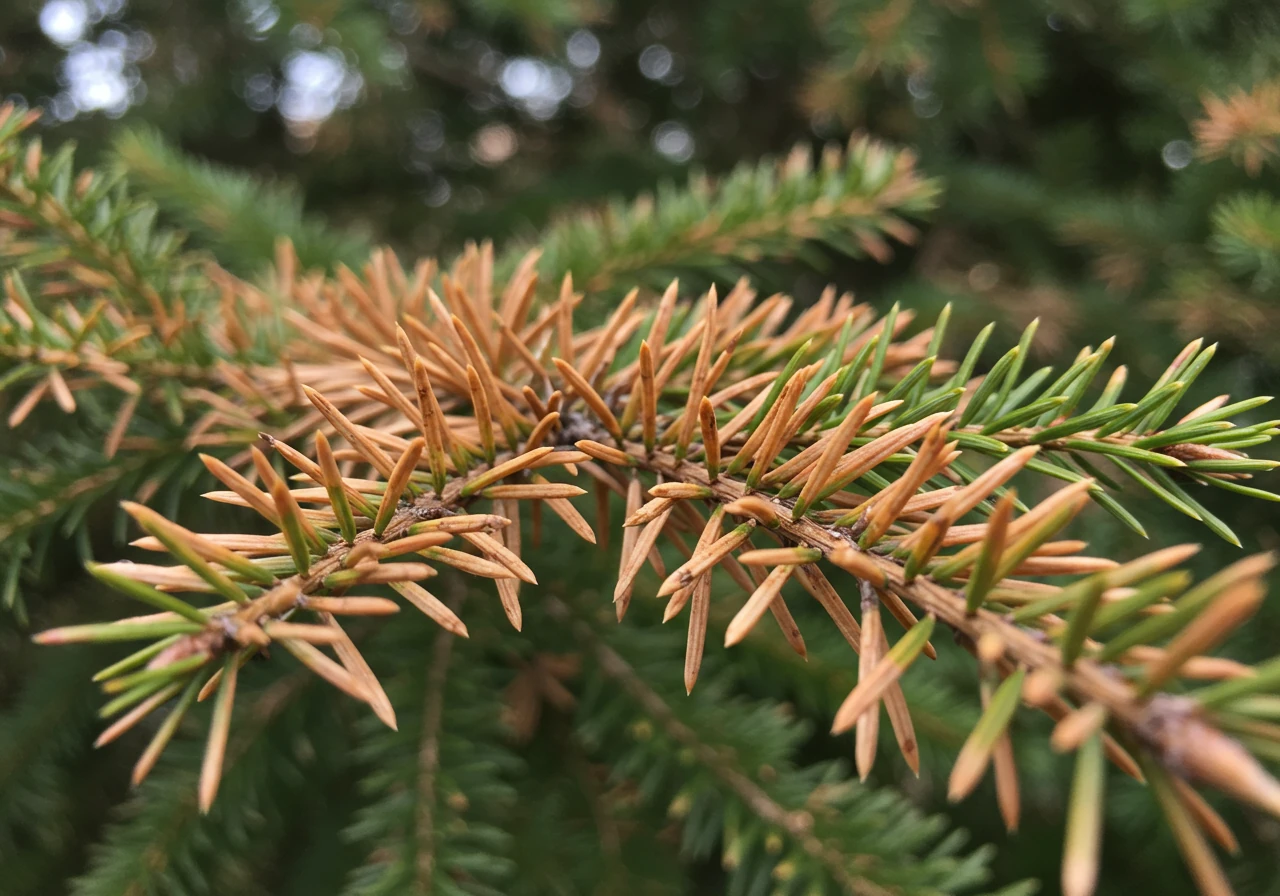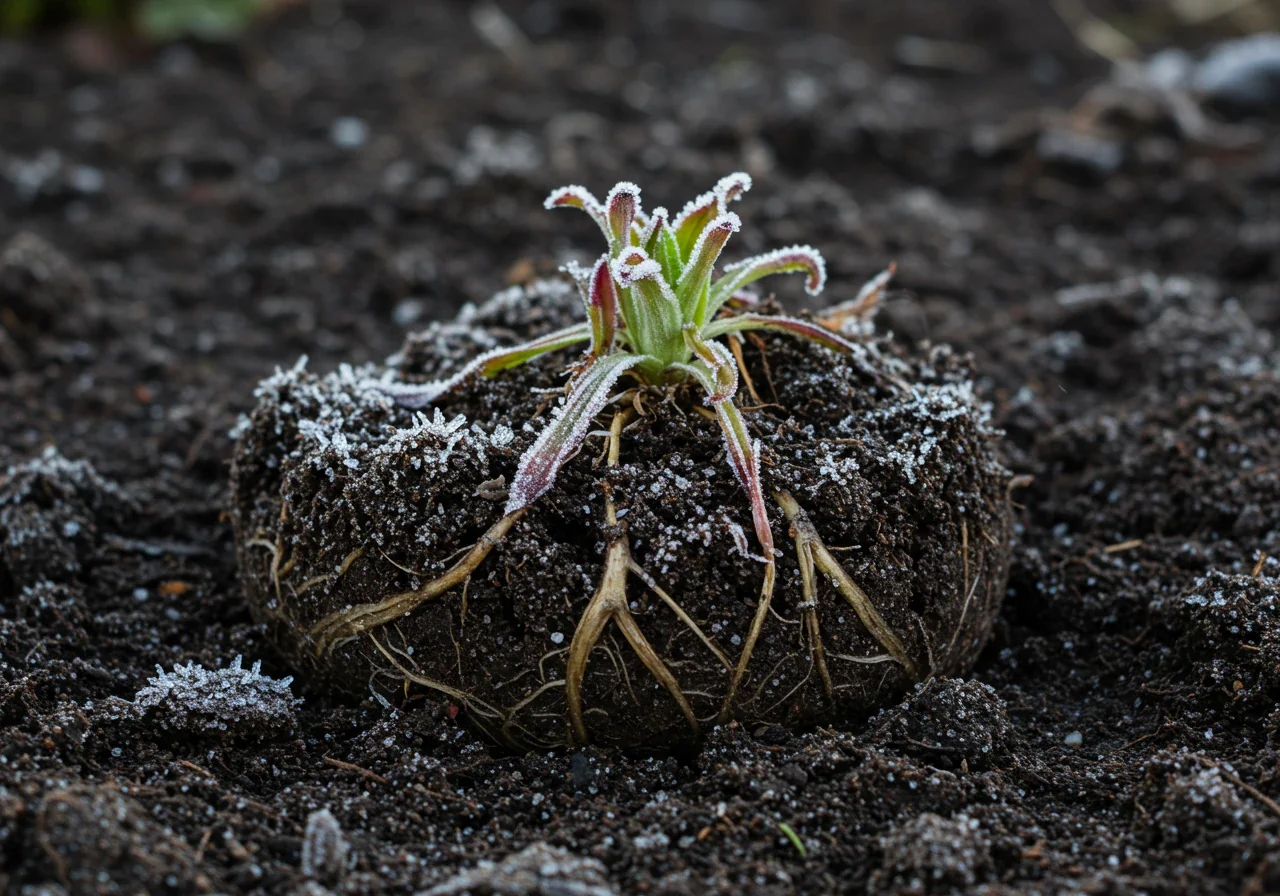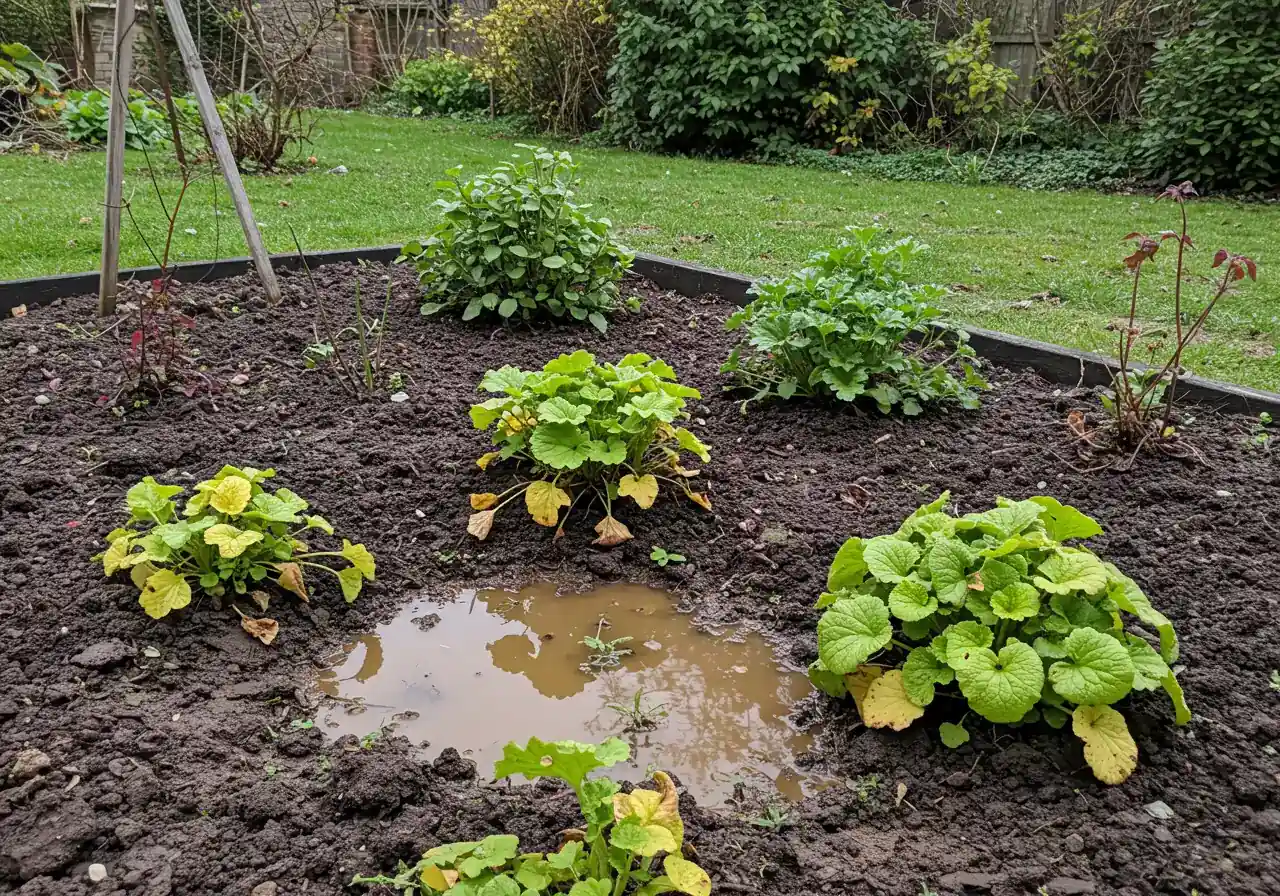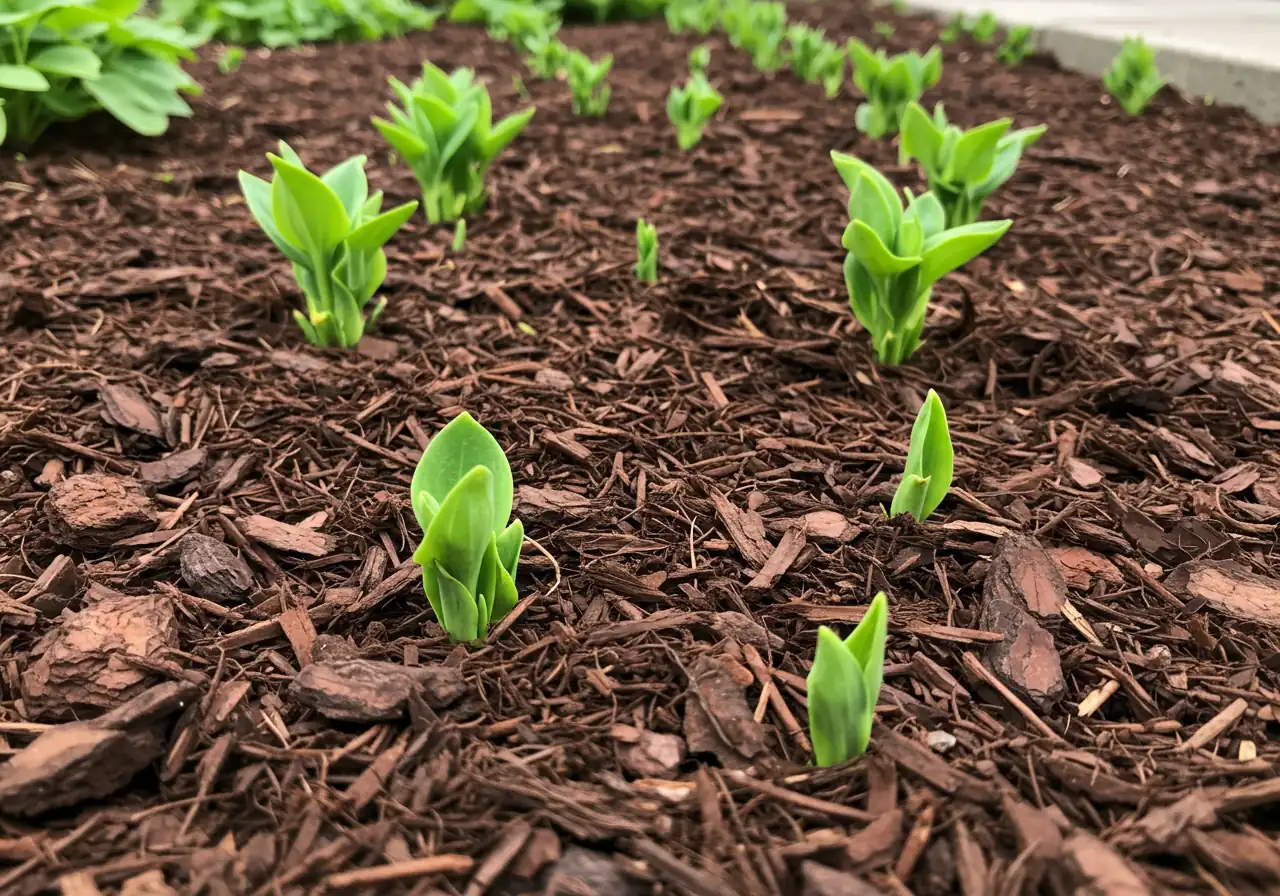Metcalfe: Assess Garden Vigor Now to Prevent Summer Loss
Quick Summary: Spring Garden Assessment
- Assess your Metcalfe garden now to identify winter damage (salt burn, frost heave).
- Check perennials, shrubs, trees, and soil for signs of stress or injury.
- Address common Ottawa spring issues: poor drainage (clay soil), nutrient deficiencies, pests, and weeds.
- Take proactive steps: amend soil with compost, water deeply, mulch effectively, and prune correctly.
- Early assessment and care prevent summer plant loss and promote a thriving garden.
Ready to ensure your garden thrives this summer? Don't wait for problems to appear.
Request Your Free Quote Today!Introduction: Spring Forward in Metcalfe – Is Your Garden Ready?
Okay, Ottawa! The snow *finally* seems to be making a strategic retreat (we hope for good this time!), and that familiar itch to swap snow shovels for garden trowels is definitely in the air. Here in Metcalfe, just like our neighbours down the road in Greely or over in Vernon, we know Ottawa spring can be a wild ride. One day feels like summer, the next... well, let's just say scarves might still be handy! But while we're eagerly planning our landscaping masterpieces and dreaming of vibrant flower beds, it's super important to pause for a quick health check. How did your garden really handle the winter freeze-thaw rollercoaster?

This is the perfect time for what we call 'early garden vigor assessment' – basically, playing plant detective to see who made it through winter strong and who might need some TLC. Are those shrub branches brittle? Does the soil look overly compacted? Ignoring subtle signs of winter damage now, like perennials pushed out of the ground (we call that heaving!) or salt burn on your evergreens, can unfortunately lead to sad, struggling plants or even summer loss when the heat cranks up. A little proactive care today prevents bigger garden heartaches tomorrow. Think of it as giving your yard a friendly spring check-up before any hidden issues become real problems. Let's make sure your green space isn't just surviving, but ready to truly thrive!
Why Bother Now? The Unique Challenges of Gardening in the Ottawa Region
"Why rush? Can't I just wait until it's *really* warm?" We hear you! But gardening in the Ottawa region isn't quite like anywhere else. We've got our own special brand of challenges, especially as spring tries to wrestle summer into submission. Think of it as gardening on hard mode sometimes, but totally worth it!
First up: our delightful weather rollercoaster. One week we're dodging surprise late frosts (RIP delicate annuals planted too soon!), the next we're hit with sudden heat that stresses out recovering plants. This unpredictable swing makes it tough for plants to establish strong roots before the real summer sizzle arrives. Getting a handle on your garden's condition now helps you choose the right plants and give them the support they need to cope. For local planting advice, consider resources like the Ottawa Horticultural Society.
Then there's the soil. If you're gardening in areas like Metcalfe or Osgoode, you know "The Clay." Heavy clay soil holds water like a sponge after the spring melt, leading to compaction and poor drainage. Working wet clay can wreck its structure for the whole season! Assessing your soil early lets you know if you need amendments or perhaps consider applying mulch correctly. Learning about Metcalfe Mulch Magic: Expert Installation Tips can make a huge difference in managing moisture and temperature.
Don't forget winter's leftovers! Even if you were diligent with your autumn prep, perhaps using Fall Cleanup Services: Get Your Metcalfe Yard Ready or focusing on Metcalfe Fall Plant Care: Winter Prep Gardens, Old Man Winter still leaves his mark. We're talking compacted soil from snow load, potential salt damage near walkways, broken branches from ice, and perennials heaved right out of the ground. Ignoring these issues now is like trying to run a marathon with a twisted ankle – your garden won't perform its best and might falter badly come July. Tasks like proper pruning, soil aeration, and even specialized work like understanding the importance of seasonal prep shown in articles like Metcalfe Fall Pond Care: Prevent Winter Damage set the stage for success.
So, why bother now? Because addressing these specific Ottawa challenges early gives your plants the best fighting chance. It’s about diagnosing problems while they're small and setting your garden up for robust summer growth, not just survival. Whether you need a full spring cleanup similar to our Marionville Yard Cleanup Service or just targeted help, understanding these local quirks is key. Check out all Our Services to see how we can help you tackle these unique regional hurdles!
Don't let winter damage set your garden back! We can help.
Get Professional Help With Your Spring CleanupYour Garden Health Check: A Step-by-Step Guide to Assessing Vigor
Okay, let's play garden detective! Grab a notepad (or just your phone), maybe a warm beverage, and let's take a stroll through your yard. This isn't about judging – it's about understanding what your plants need to put on their best show this season. Here’s your step-by-step guide to checking your garden's pulse:

Step 1: The Grand Tour – A Bird's-Eye View
First, just walk around your entire property. What’s the overall impression? Look for the obvious stuff:
- Winter Debris: Are there fallen branches, leftover leaves matted down, or general clutter left from winter? A tidy space is often a healthier space. Sometimes, a good initial sweep is needed, similar to what's involved in a comprehensive Ottawa Property Cleanup Service.
- Bare Patches or Damage: Notice any unusually bare spots in the lawn? Any signs of animal damage, like vole tunnels under the snow (now revealed!) or rabbit nibbling on low branches? Significant bare areas might eventually need addressing, perhaps even considering Sod Installation for a fresh start. Need help with lawn care? Check out our Lawn Care services.
- Standing Water: Any areas where water seems to puddle excessively after rain or snowmelt? This could signal compaction or drainage issues. Learn more about local water management from the Rideau Valley Conservation Authority.
Step 2: Perennial Check-Up – Waking Up the Sleepers
Now, let's zoom in on your flower beds. Gently poke around the base (the crown) of your perennial plants (like Hostas, Daylilies, Peonies – Ottawa favourites!).
- Healthy Signs: Look for tiny new leaves emerging from the center or base. The crown should feel relatively firm. Some perennials are late risers, so don't panic if you don't see much yet, especially in cooler spots like parts of Nepean. Check local resources like the Master Gardeners of Ottawa-Carleton for specific advice.
- Uh-Oh Signs: Is the crown mushy or completely dried out and brittle? Has the plant been pushed up out of the ground (frost heaving)? These plants might need extra help or replacing. Gently press any heaved plants back into the soil.
Step 3: Shrub & Tree Scrutiny – Checking the Woody Wonders
Stand back and look at your shrubs and trees. Then get a little closer.
- Healthy Signs: Look for plump buds swelling on the branches – a sure sign of life! Branches should have some flexibility (don't snap them all!). Bark should generally look intact.
- Uh-Oh Signs: Are there lots of broken branches from snow or ice? Do evergreen needles look brown and crispy, especially on the side facing the road or walkway (hello, salt damage!)? Gently scratch a tiny bit of bark on a questionable twig – green underneath means life, brown means it's likely deadwood that needs pruning. Excessive damage might require more than just a quick trim; sometimes a thorough cleanup, like the work offered by a Metcalf Property Cleanup Service or even broader City Property Cleanup Service, can help assess and manage widespread issues.
Step 4: Soil Surface Secrets – Getting Down to Earth
Finally, look at the ground itself, the foundation of your garden.
- Healthy Signs: Soil should look reasonably dark and crumbly (when not soggy from meltwater). Earthworms are a great sign! A layer of mulch from last year is good, provided it's not suffocating plant crowns.
- Uh-Oh Signs: Does the soil look pale, cracked, and hard-packed? Is there moss or green algae growing on the surface (often indicates poor drainage, compaction, or too much shade)? Can you easily stick a trowel in, or does it feel like concrete? Addressing poor soil is crucial. Proper Soil Preparation techniques, like adding compost, can make a world of difference before you plant or fertilize.
Doing this quick check helps you spot potential problems before they become big headaches. It guides your spring gardening and landscaping efforts, whether that's pruning, amending the soil, or knowing when you might need a bit more help, maybe even a detailed spring tidy-up comparable to a Marionville Yard Cleanup Service. Think of it as giving your Barrhaven or Ottawa garden a friendly high-five and asking, "You good?" Now you have a clearer picture and can plan your next steps for a gorgeous, thriving yard!
Decoding Distress Signals: Common Spring Problems & Solutions Around Metcalfe
Okay, let's talk about those little SOS signals your Metcalfe garden might be sending out this spring. Sometimes plants aren't exactly subtle when they're unhappy! Catching these common issues early means less landscaping heartache later. Here’s how to decode some typical spring distress calls in the Ottawa area:

Problem: The Soggy Bottom Blues (Poor Drainage)
Distress Signal: You notice water hanging around for ages after rain, especially in lower spots. The soil surface might look slimy or grow moss, and plants can develop yellowing lower leaves even with sunshine. This is pretty common in areas with heavy clay soil, like parts of Metcalfe or down towards Kars.
Rescue Mission: First, avoid walking on or working saturated soil – that just makes compaction worse! The best long-term fix is improving soil structure by adding lots of compost each year. For immediate relief in problem spots, consider creating raised beds. Ensuring your downspouts direct water away from garden beds is crucial. Planning for proper grading during a new Garden Install can prevent drainage headaches from the start. Aerating your lawn can also help significantly.
Problem: Pale & Puny Plants (Nutrient Issues)
Distress Signal: Plants just look… meh. Growth seems slow, leaves might be yellowish (sometimes with green veins, a classic sign), and they generally lack that vibrant gardening mojo.
Rescue Mission: Give them a boost! Top-dressing your garden beds with a layer of good quality compost provides a slow release of nutrients. You can also use a balanced, organic fertilizer, but always follow the package directions – more isn’t always better! Healthy soil teeming with life is the goal.
Problem: Uninvited Dinner Guests (Pests & Disease)
Distress Signal: You spot chewed leaves, maybe some sticky stuff on stems (a calling card of aphids), or powdery white patches on leaves like phlox or bee balm, especially during damp Ottawa springs.
Rescue Mission: Play detective! Catching pests early is key. A strong spray of water can knock off aphids, or use insecticidal soap for heavier infestations. Prune plants to improve air circulation, which helps prevent fungal diseases like powdery mildew. Cleanliness matters; removing dead leaves and debris helps eliminate places where pests and diseases overwinter. A thorough spring tidying, perhaps similar to a detailed Marionville Garden Clean Up Service, can make a real difference.
Problem: Winter's Lingering Punch (Damage)
Distress Signal: Beyond the obvious broken branches, look for brown, crispy needles on evergreens (especially roadside – thanks, salt!), cracks in tree bark, or perennials that were heaved by frost and are now failing to thrive. Damage near public walkways might even warrant comparing notes with neighbours who've used a City Property Cleanup Service.
Rescue Mission: Prune away any dead or damaged wood, making clean cuts just above a healthy bud or branch collar. Gently press heaved perennials back into the soil. For salt damage, flushing the area with water *can* help, but prevention next fall (like using burlap screens) is better. If you see major structural damage on trees, it's wise to consult professionals. You can learn more about our approach to yard care challenges on our About Us page.
Problem: The Weed Free-for-All
Distress Signal: It seems like dandelions, chickweed, or worse, thistle, are staging a hostile takeover, popping up faster than you can pluck them, especially in areas like Richmond where open spaces meet garden edges.
Rescue Mission: Mulch is your best friend! A 2-3 inch layer of wood chips or shredded bark helps smother existing weeds and prevents new seeds from sprouting (see our Mulching and Edging services). Pull weeds when they're small and the soil is moist – you're more likely to get the whole root. Interestingly, strategic planting and smart Material Selection for groundcovers can create a living mulch that outcompetes weeds. Seeing well-managed gardens thrive is inspiring; check out some successful garden rejuvenations in our Transformations gallery!
Recognizing these signs and acting quickly helps ensure your garden spends less time recovering and more time thriving beautifully all season long!
Building Resilience: Proactive Steps for a Summer-Proof Garden

Alright, team, let's talk about getting your garden ready to rumble with Ottawa's summer heat! It's not just about surviving; it's about thriving, even when the sun is beating down. Think of it as sending your plants to a fancy spa before the stress hits. Building resilience now means less worry later. Here are some proactive steps to create a truly summer-proof garden:
1. Feed Wisely, Not Wildly
Forget quick chemical fixes. Amend soil with compost for sustained nutrition. Use balanced, organic, slow-release fertilizers if needed, following directions carefully. Healthy soil = happy plants. Expert soil prep advice is often included in services like our Metcalfe Garden Clean Up Service.
2. Water Deeply, Not Daily
Train roots to go deep! Water thoroughly and less often, letting the topsoil dry slightly between waterings. Water early in the morning. Use soaker hoses or drip irrigation for efficiency.
3. Mulch is Your Garden's Best Friend
Apply 2-3 inches of organic mulch (shredded bark, wood chips) - avoid piling against stems. Mulch conserves moisture, suppresses weeds, cools soil, and adds organic matter over time. Learn more about Mulching and Edging.
4. Prune for Performance (at the Right Time)
Do most major pruning in early spring. Remove dead, damaged, or crossing branches to improve air circulation and direct energy to healthy growth. Avoid heavy pruning in summer heat.
5. Embrace Native Power
Incorporate native plants suited to Ottawa's climate (e.g., Purple Coneflower, Serviceberry). They're adapted to local conditions, need less fuss, and support pollinators. See examples in our Transformations Gallery.
Timing is Everything
Late Spring (May/Early June): Apply compost/fertilizer. Finish pruning. Apply mulch after soil warms. Start deep watering. Summer: Monitor water, weed promptly, watch for pests. Overall property health matters too, sometimes addressed by a City Yard Cleanup Service.
Building a resilient garden takes a little planning, but the payoff is huge: healthier plants, less work during the dog days of summer, and a more beautiful outdoor space. If you have specific questions about applying these strategies or want professional help getting your garden summer-ready, feel free to Contact Us. Before booking any extensive project, we always recommend reviewing our service details, outlined in the Clean Yards Terms and Conditions, to ensure everything is clear. Let's make this summer your garden's best one yet!
Impact of Proactive Care on Garden Resilience
*Illustrative resilience percentage based on applying proactive steps.
Metcalfe Gardener's Quick Wins
Boost your Ottawa garden fast! Quick tips for Metcalfe green thumbs:
- Inspect Early: Spot winter damage now. A quick look prevents bigger issues later.
- Soil TLC: Amend heavy clay soil with compost for happier, healthier plant roots.
- Prune Promptly: Snip off dead/damaged wood to direct energy to new growth.
- Mulch Mania: Apply 2-3 inches! Saves water, cools soil, smothers pesky weeds.
- Water Smart: Water deeply, less often. Builds stronger, drought-tolerant roots.
- Need Help? For large cleanups, see our Metcalf Yard Cleanup Service or the general Ottawa Yard Cleanup Service. Explore ongoing professional garden maintenance or targeted City Garden Maintenance Service. Your data is safe, see our Clean Yards Privacy Policy.
FAQs: Your Ottawa & Metcalfe Garden Questions Answered
Got questions about keeping your patch of Ottawa green and gorgeous? You're not alone! From dealing with our "special" soil to timing those tricky spring tasks, here are answers to some common head-scratchers for gardeners in Metcalfe and beyond.
Ah, Ottawa clay – builds character, right? The best fix is consistent addition of organic matter. Top dress beds annually with several inches of compost. This improves drainage and water retention (weird, but true!). Avoid working the soil when it's wet. Adding mulch also helps moderate soil conditions over time.
Patience, eager beaver! While it's tempting, Ottawa's last frost date is typically around mid-May (Victoria Day weekend is a classic target). Planting tender annuals before then is risky. Watch the forecast closely! Getting past that risk feels great – that moment of garden success is like reaching our Thank You page after a successful project.
Good question! Leaving leaves can insulate plant crowns over winter, but it can also harbour pests or diseases. A gentle spring cleanup is often best. Rake away soggy, matted leaves carefully once the ground thaws, avoiding damage to new shoots. If it feels overwhelming, a professional Ottawa Garden Clean Up Service can get things tidy quickly.
If fallen branches, packed leaves, and general winter crud cover large areas, or if you lack the time or tools, calling for help is smart! Tackling a massive job yourself can be daunting. Services like a comprehensive Property Clean Up handle everything, saving you time and backache, whether you're in Greely or closer to the city core.
It's possible! Some folks do meticulous fall cleanups, while others prefer spring. Factors like wind exposure and tree cover matter too. Sometimes, a targeted approach works best. For instance, managing specific zones might resemble the focus of a dedicated City Garden Clean Up Service, addressing unique challenges within smaller or more defined areas effectively.
Great question! A general cleanup tackles the whole yard. A location-specific service like the Marionville Property Cleanup Service might address common issues or typical property sizes found in that particular area, ensuring the right equipment and approach are used for maximum efficiency and tailored results for homeowners there. Compare this to our general Metcalf Property Cleanup Service or Ottawa Property Cleanup Service offerings.
We welcome feedback on our services! See our Estimate Feedback page.
Conclusion: Give Your Garden the Best Chance This Summer
Okay, team Metcalfe, and all our fellow Ottawa-area garden warriors! We've covered a lot, from why bothering now is so important (hello, unpredictable weather and that infamous clay soil!) to playing plant detective and decoding those little green distress signals. Remember, giving your garden that early spring check-up and a bit of proactive care isn't just about fixing problems – it's about setting the stage for a stunning, resilient show all summer long. It's like giving your plants a pep talk and a protein shake before the big race!
Whether you’re nurturing flower beds in Richmond, battling persistent weeds near Embrun, or planning your landscaping masterpiece out in Kenmore, don't feel daunted! Every little step you take now – gently waking up perennials, amending that soil, pruning away winter woes, planning your watering strategy – gives your plants a massive head start. Think of the vibrant blooms and lush growth waiting just around the corner. You've absolutely got this!
Ready to roll up your sleeves? Your first mission, should you choose to accept it (and we hope you do!): grab your notepad (or phone!) and head outside this weekend for that quick garden health assessment we walked through. See what survived winter like a champ and who might need a little extra TLC to thrive.
Feeling overwhelmed or just short on time? No worries at all! Sometimes calling in the cavalry is the smartest move. Let the pros handle the heavy lifting. We offer expert spring clean up, garden maintenance, and landscaping support throughout Ottawa, including Metcalfe, Greely, Manotick, Nepean, Barrhaven, and surrounding communities. Give your garden the best possible start – get your free, personalized quote today by visiting CleanYards.ca or calling us at 613-Clean-Up (613-253-2687). Find us on Google: Clean Yards Google Business Profile. Let's work together to make this your best gardening season yet!
Ready for a beautiful, thriving garden without the hassle?
Get Your Free Quote Now!
